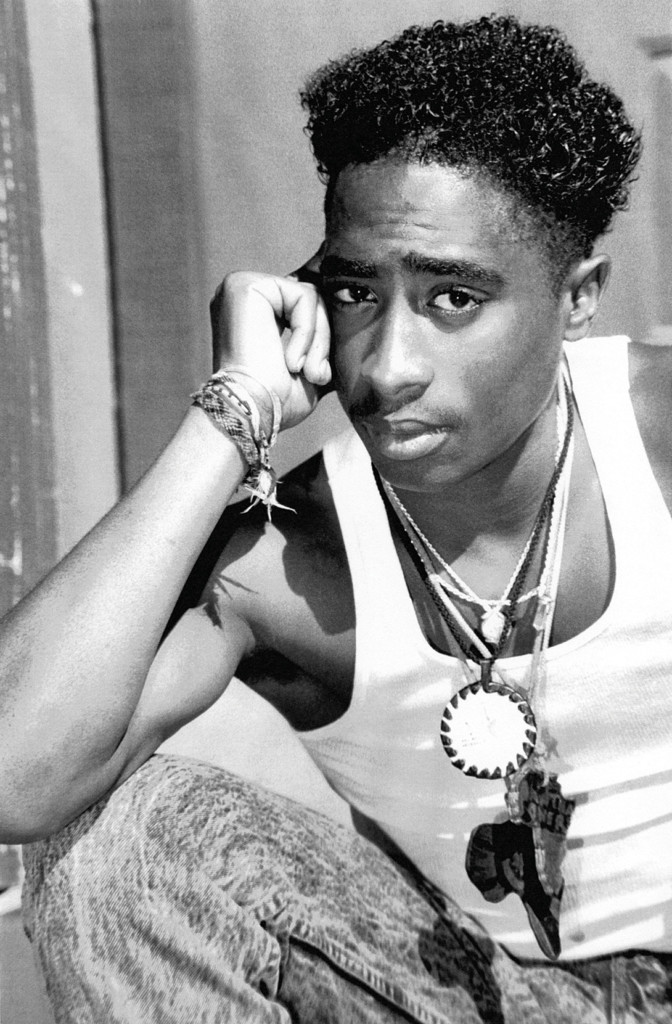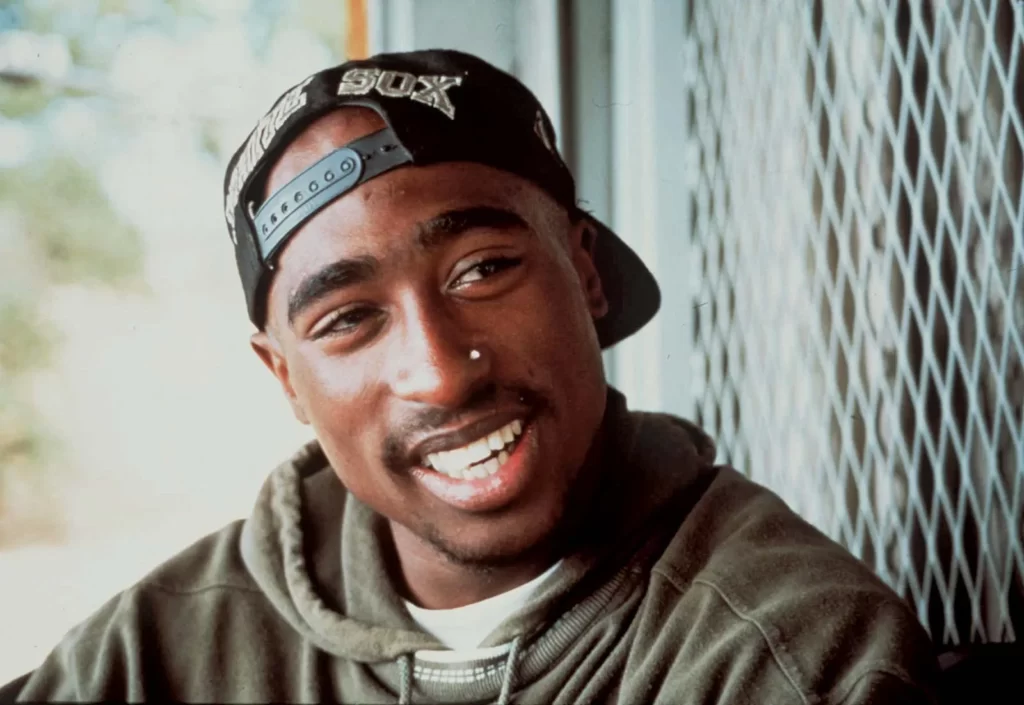| Tupac Amaru Shakur Net Worth:- $200 Thousand Born:- Lesane Parish Crooks Date of Birth:- June 16th, 1971 was a Wednesday Died ;- September 13, 1996 (aged 25) Las Vegas, Nevada, U.S Age:- 52 years old Other names:- 2Pac, Pac, 2Pacalypse, Makaveli, MC New York Place of Birth:- East Harlem Gender:- Male Height :- 5 feet 10 inches Occupations;- Rapper, songwriter, actor Nationality:- United States of America |
Table of Contents
What was Tupac’s Net Worth?
Tupac Shakur, also known as 2Pac, was an American rapper and actor. He had a net worth of $200 thousand at the time of his death in 1996. Tupac gained fame in the early 90s as a trailblazing figure in West Coast hip hop. He is widely recognized as one of the most influential and greatest rappers in history. Additionally, he holds the distinction of being one of the highest-selling artists of all time, having sold over 75 million records worldwide. Tragically, Shakur passed away on September 13, 1996, six days after being shot in a drive-by shooting in Las Vegas.
https://www.youtube.com/watch?v=fSq-4Dhwugg
Net Worth at Death
Despite earning $60 million from album sales in 1996 alone, Tupac’s financial situation was in disarray at the time of his passing. A forensic lawyer discovered that he had very little to show for his success, with no real estate, retirement accounts, or stocks to his name. Even the Woodland Hills mansion he lived in was not owned by him. His primary assets were a life insurance policy, two cars, and a checking account with $105,000. Unfortunately, court fees and taxes quickly depleted these assets. The only valuable asset that Afeni Shakur received from her son’s estate was a Mercedes Benz SL 500.
Estate Value and Control
From a technical standpoint, Tupac was in a significant amount of debt, owing $4.9 million to his record company Death Row at the time of his death. Due to the absence of a will, Afeni took charge of his estate. Eventually, she filed a lawsuit against Death Row, accusing them of withholding royalties and failing to fulfill the advances promised in Tupac’s contract. Death Row refuted these allegations, asserting that Tupac’s financial troubles were a result of his extravagant spending habits.
To support their claim, Death Row presented records indicating that they had loaned Tupac millions of dollars in the year leading up to his demise, primarily to finance his lavish lifestyle. The company provided him with several hundred thousand dollars to purchase cars and rent multiple homes for himself and his family members. Additionally, Death Row covered a $300,000 bill accumulated by Tupac at a single hotel in Los Angeles. They also facilitated a monthly payment of $16,000 that Tupac had arranged to support his mother. Lastly, the label fronted $2 million to cover the costs of Tupac’s album and related music videos for “Makaveli: The Don Killuminati.”
When Tupac’s mother threatened to prevent the release of the album until the financial concerns were addressed, Death Row’s distributor, Interscope Records, promptly paid his estate $3 million. Interscope also agreed to pay an additional $2 million within a year and raised Tupac’s royalty rate from 12% to 18%. Furthermore, Interscope forgave half of the $4.9 million debt claimed by Death Row. Jimmy Iovine played a crucial role in facilitating a peaceful resolution during this tense period.

Over the following decades, Tupac’s estate would generate tens of millions of dollars through the posthumous release of his albums, merchandise sales, and various forms of image licensing.
Early Life and Education
Lesane Parish Crooks, famously known as Tupac Shakur, was born on June 16, 1971, in New York City. His parents, Afeni and Billy, were members of the Black Panther Party, and several of his family members were also involved with the organization. Unfortunately, many of them were convicted of crimes and imprisoned. Shakur had an older stepbrother named Mopreme and a younger half-sister named Sekyiwa. In 1984, the family relocated to Baltimore, Maryland, where Shakur attended Roland Park Middle School and Paul Laurence Dunbar High School. He later transferred to the Baltimore School for the Arts in the tenth grade, where he studied acting, jazz, ballet, and poetry, and performed in various plays. In 1988, Shakur moved to Marin City, California, and attended Tamalpais High School in nearby Mill Valley. Although he didn’t graduate, he later earned a GED.
Career Beginnings
In the year 1989, Shakur commenced his recording career using the stage name MC New York. He collaborated with his manager Leila Steinberg, who assisted him in securing a performance with the hip hop ensemble Digital Underground. It was with this group that he made his first appearance as 2Pac on the single “Same Song” in 1991.
Solo Albums
In late 1991, Shakur unveiled his debut solo studio album titled “2Pacalypse Now.” This album marked the beginning of his solo career and featured notable singles like “Brenda’s Got a Baby,” “If My Homie Calls,” and “Trapped.” Through this album, Shakur established himself as a powerful social critic, addressing issues such as racism, police brutality, and poverty. Moving forward, in early 1993, he released his second studio album called “Strictly 4 My N.I.G.G.A.Z…,” which gave rise to popular hits like “Keep Ya Head Up” and “I Get Around.”

During his incarceration in early 1995, Shakur released his third studio album, “Me Against the World.” Widely regarded as his magnum opus and one of the most influential rap albums ever, it debuted at the top spot on the Billboard 200 chart. This album featured impactful singles such as “Dear Mama,” “So Many Tears,” and “Temptations.” The following year, Shakur achieved yet another massive success with his album “All Eyez on Me,” which also reached number one on the Billboard 200. Notable singles from this album include “How Do U Want It” and “California Love.” It is important to note that this would be the last album released during Shakur’s lifetime. Several albums were subsequently released posthumously, including “The Don Killuminati: The 7 Day Theory,” “Still I Rise,” and “Pac’s Life.”
Thug Life
Furthermore, apart from pursuing his solo career, Shakur established a hip hop collective known as Thug Life in the latter part of 1993. This group consisted of other talented individuals such as Big Syke, Macadoshis, the Rated R, and Shakur’s stepbrother Mopreme. Together, they released a single album titled “Thug Life: Volume 1” in 1994.
Film Career
During his career, Shakur featured in several movies. In 1992, he landed his first lead role in the crime thriller “Juice.” The next year, he starred alongside Janet Jackson in the romantic drama “Poetic Justice.” In 1994, he appeared in the sports drama “Above the Rim.” Following his death, three films featuring Shakur were released between 1996 and 1997: “Bullet,” “Gridlock’d,” and “Gang Related.”
Legal Troubles
Shakur encountered numerous encounters with the law as a result of sexual assault and various acts of violence. Towards the end of 1993, he, along with two others, faced charges of raping a woman in New York, in addition to being charged with illegal possession of a firearm. While Shakur was ultimately acquitted on some charges, he was found guilty of first-degree sexual abuse, leading to his imprisonment.
In 1993, on Halloween, Shakur was apprehended in Atlanta for shooting two off-duty police officers, with some reports suggesting it was an act of self-defense. The following year, he served time in jail for assaulting one of the directors of the film “Menace II Society,” a project in which he was initially set to play a starring role. Alongside his other legal troubles, Shakur also faced jail time in 1994 for misdemeanor assault and in 1996 for concealing a firearm and violating the terms of his release.

Relationships
Shakur was fortunate to have several influential acquaintances who supported him throughout his legal difficulties. Among them were Jada Pinkett, Mickey Rourke, Madonna, and Jasmine Guy. During his incarceration in 1995, Shakur entered into matrimony with Keisha Morris, but their union was dissolved after a mere ten months.
Shootings and Death
In late 1994, Shakur and a few others were robbed and beaten at Quad Studios in Times Square. He believed that the shooting was planned, as he had been offered money to come to the studio by music manager James Rosemond. Shakur also accused East Coast rappers Sean Combs and the Notorious B.I.G. of being involved in the attack. On September 7, 1996, while Shakur was traveling in a convoy in Las Vegas, a Cadillac sedan pulled up to his car at a stop light and someone inside opened fire. Shakur was hit four times and was taken to the University Medical Center of Southern Nevada, where he was placed on life support. He passed away six days later. The identity of the person responsible for his murder is still unknown, with allegations ranging from Crips gang member Orlando Anderson to Shakur’s hip hop rival the Notorious B.I.G., who was killed in another drive-by shooting in early 1997.
Legacy
Shakur is commonly acknowledged as one of the most exceptional and impactful rap artists in history. The year 2002 witnessed his induction into the esteemed Hip-Hop Hall of Fame, while in 2017, he was honored with induction into the prestigious Rock and Roll Hall of Fame. Shakur’s life and career have also been extensively portrayed in various films, including the critically acclaimed documentary “Tupac: Resurrection,” which received an Academy Award nomination, and the biographical film “All Eyez on Me,” featuring Demetrius Shipp Jr. portraying Shakur.
FAQs about Tupac’s Net Worth
- 1. How did Tupac die?
- Ans;- Tupac Shakur succumbed to gunshot wounds in a drive-by shooting in Las Vegas on September 13, 1996.
- 2. Is Tupac still alive?
- Ans:- No, Tupac Shakur passed away on September 13, 1996.
- 3. What awards did Tupac win?
- Ans;- Tupac received numerous awards, including a Grammy for Best Rap Performance and several MTV Music Awards.
- 4. How much is Tupac’s estate worth?
- Ans:- As of recent estimates, Tupac’s estate is valued at a substantial figure, with ongoing revenue streams.
- 5. How are Tupac’s royalties managed?
- Ans:- Tupac’s estate, managed by a dedicated team, oversees the licensing and distribution of his music, ensuring continued financial success.

